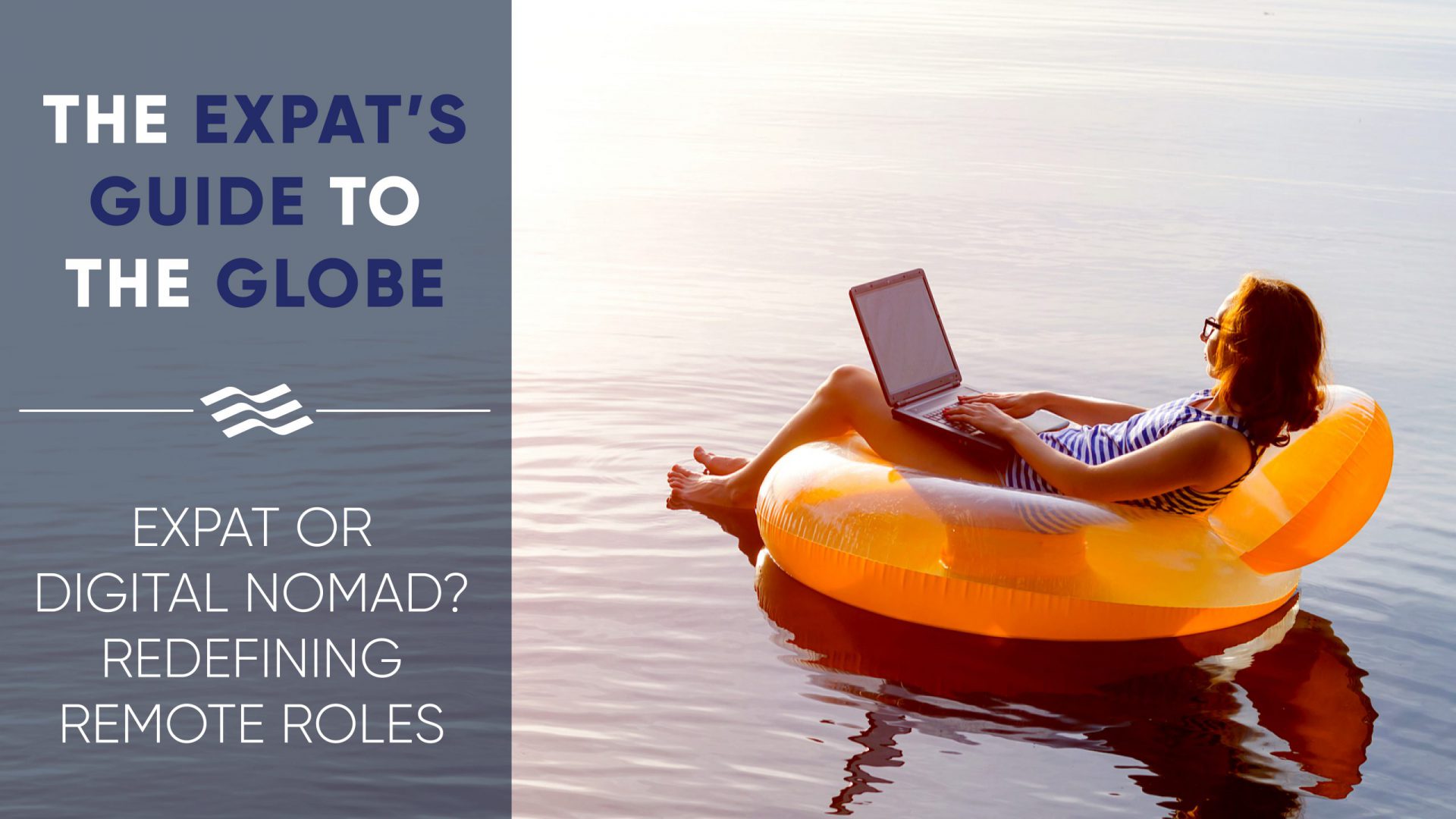
Posted on: 28th January 2021 in The Expat's Guide to the Globe
The expat lifestyle can be a truly rewarding one. The chance to work and live abroad creates a unique experience and builds memories that last a lifetime.
Of course, leaving the life you know and moving abroad does come with its challenges. Sometimes you need a little advice, which is where our new series comes in.
The Expats Guide to the Globe is our weekly series, designed to help new and existing expats navigate the challenges associated with the lifestyle. Each week, we will take an in-depth look at a different topic to give you the information you need to make the most of your expat experience.
This week, we look at expats vs digital nomads and the key to successful remote working.
Remote working is a way of life for many of us today.
However, the freedom of working in different locations isn’t something new for some. Digital nomads have made it a lifestyle.
The question is, are you an expat or a digital nomad? Most Brits working abroad will refer to themselves as an expat. However, things aren’t so black and white now.
There was a time when there was a clear distinction between an expat and a digital nomad. Since the pandemic, the lines between the two have become blurred.
Transitioning from the office to your new workspace can be tricky, especially for those moving abroad. Before we get into our guide, let’s look at why the terms ‘expat’ and ‘digital nomad’ are more interchangeable now than ever.
Most people will know what we mean when we use the term ‘expat’.
Typically, an expat is someone who moves to another country, often for work purposes. A digital nomad is very similar except for one key difference – how, or more specifically, where they conduct their work.
Digital nomads rely on telecommunications technology, such as the internet to earn a living. Working in this way means, as long as they have a good internet connection, they can work in a shared office space or even on a beach.
Unlike their counterparts, expats often work in a physical office space. That was, until recently.
When the pandemic hit, most companies switched to a work from home model. Team meetings went digital, and travelling to the office meant walking to another room in the house.
You could argue that the terms ‘expat’ and ‘digital nomad’ can now be used interchangeably. The realisation for some that their role doesn’t need to dictate their location has created new opportunities.
People have warmed to the idea of working from home. However, one thing that hasn’t warmed is the UK weather.
Thankfully, trading that dreary view from your home office window for something more exotic is an option.
In a bid to boost their economies, countries worldwide have started to offer a remote workers visa. If remote working in the UK isn’t for you, maybe a beach in Barbados will make those work tedious tasks a little more bearable.

Whether you consider yourself a digital nomad or an expat who works remotely, preparation is vital. So, here is our advice for successful remote working.
Below are some tips to help you successfully navigate some of the pitfalls associated with remote work abroad.
This part is crucial. If you don’t have a good internet connection (or a connection at all), remote working will be all but impossible.
Working on a beach with the sound of the waves crashing in the background sounds fantastic. However, things can go from paradise to regret very quickly when you’re trying to get a signal to send that all-important project to your boss.
Do you need a connection throughout the day or just for scheduled meetings?
These are questions you need to ask yourself. Ensure that wherever you choose as your office space, you have the facilities required to do your job successfully.
There is nothing worse than your battery dying right before you hit the save button. Worse still is when you realise you are trying to plug a three-pin plug into a two-pin socket.
Ensure you have an adapter for the country you are travelling to and avoid stressful situations like the one we mentioned above.
Your battery dying before you save your work is stressful. However, losing everything can cause a complete meltdown.
Cloud-based services back up most important files, but hard copy backups provide extra reassurance.
Any number of things could happen to your work device, whether it’s a laptop, desktop or tablet. Saving copies of important files to an external drive can be a lifesaver.
This is a big one. All of us hope we don’t need it, but insurance is there for those unfortunate moments.
The type of cover you need will depend on the location you are travelling to and your circumstances.
Countries with free hospitals are rarer than you may think. Most countries don’t provide the same health services found in the UK, so having the right cover is crucial should you need it.
It’s also important to note that nearly all of the countries which offer remote working visas, require you to have health insurance.
We hope our guide to remote working gave you some things to consider. Wherever life takes you, Holborn is here to help.
Whether it’s finding the right insurance policy or tax-efficient savings, our experts are here to help you make the best choices.
To find out how we can help you, contact us using the form below.
We have 18 offices across the globe and we manage over $2billion for our 20,000+ clients
Get started
In today’s world, much of our lives are lived online. From email accounts and social media profiles to digital wallets and online businesses, we’re building a digital legacy—often without realising...
Read more
When it comes to growing your wealth, choosing the right investment path can make all the difference—especially if you’re an expat managing finances across borders. Two of the most talked-about...
Read more
Building wealth is one thing—but building a legacy that lasts for generations? That’s something else entirely. For families, especially those living and working abroad, creating multi-generational wealth means more than...
Read more
Living abroad as an expat can be one of life’s most rewarding adventures—but it also comes with its fair share of financial surprises. Whether you’ve relocated for work, lifestyle, or...
Read more